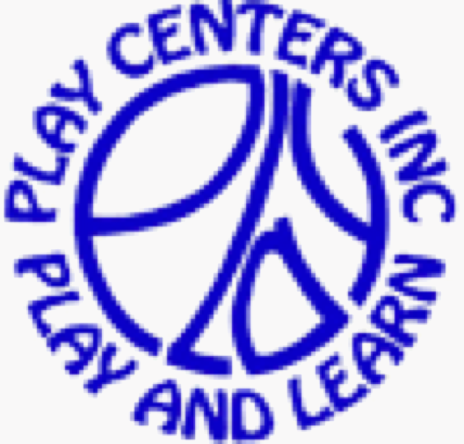Pre-School
Curriculum
THE INVESTIGATOR CLUB – PROGRAM OVERVIEW
Excerpt from The InvestiGator Club PreKindergarten Learning System (Robert-Leslie Publishing)
“The InvestiGator Club Early Childhood with STEAM is a comprehensive, fully-integrated learning system for a full year of instruction. While meeting all of the learning standards is essential, we want the preschool years to be inspiring.
In The InvestiGator Club, you’ll find fun around every corner!
The curriculum provides the guidance and materials teachers need to encourage children to use their innate curiosity and enthusiasm for learning. As the children progress through this engaging, inquiry-based, hands-on curriculum, they build the skills and approaches to learning that will help them succeed in school.
Whether you’re teaching a class of 3-year-olds, 4-year-olds, 5-year-olds, mixed ages, or classrooms with children who have developmental or special needs or who are learning English, The InvestiGator Club provides a variety or research-based products to help (teachers) customize instruction to support the needs of all children in every type of classroom, while nurturing the whole child and laying the foundation for social, emotional, and cognitive growth.”
Snacks & Meals
Nutritional snacks are an important aspect of the daily program and are provided at the center to children three years of age and older. Snacks that may be served include cheese, crackers, granola bars, fresh fruits and vegetables, pudding, 100% fruit juices, milk, and a variety other healthy foods.
It is the Parent’s responsibility to provide a nutritionally-sound lunch each day. Please send ready-to-eat items that can be served cold or at room temperature for your child to enjoy at lunchtime. We are unable to warm lunches for the children under the age of 5.
No microwaves, ovens or thermoses may be used. Only bottles
for infants/toddlers will be warmed.
Please keep in mind that soda, gum and candy are not appropriate for your child’s nutritional needs.
Tuition
Tuition rates vary based upon the center location, child’s age, and the type of care your family is in need of. If you would like enrollment and tuition information for one of our programs, we invite you to call the Play Centers, Inc. Administrative office at 410-296-4880, ext. 100.
Our Office Manager will assist you with selecting the Play Centers School Age or Preschool Program that best fits your family’s needs and will provide you with information regarding tuition and enrollment.
Child Development
The Three-Year-Old
Generally, the three-year-old is still becoming acquainted with hissurroundings, new materials, and the various possibilities that exist. He usually enjoys his peers, is emerging into cooperative play, but is still relying on adults for affirmation. It is important to him that adults notice his accomplishments.
Many three-year-olds have become great conversationalists and will want opportunities to share conversation within a group. Questions of Why?, What?, and How? may begin to abound. Explanations help the three-year-old make sense of his world.
Pretend play becomes a strong interest, and opportunities to be silly and imaginative are crucial.
The three-year-old has generally learned how to make simple choices.
This ability should be reinforced by allowing him to choose, for example, between milk or juice, red or blue paint, etc.
Predictability in routine is extremely important to three-year-olds. Sudden changes or departure from the normal routine may be upsetting, so consistency and established transition periods are valuable.
The three-year-old is generally interested in activities requiring more precise manipulation — building with blocks, stringing large beads, easel painting, and creating with clay. There may be a temporary lack of fine motor coordination in the three-and-a-half to four-year-old which could result in frustration where precise manipulation is concerned.
Sharing and taking turns is likely to be unfamiliar to the young three-year-old, but may be learned during the course of that year. Group activities which require waiting for your turn or sharing a special toy will likely result in frustration or disaster!
Typically, the three-year-old needs learning experiences that are concrete in nature and that include hands-on, sensory involvement, and the inclusion of visual aids or stories, lessons, etc. The three-year-old is likely to have difficulty in understanding abstract concepts such as changing seasons, the meaning of holidays, or size differences. In addition, it is beneficial to offer learning experiences which introduce the more sophisticated skills of developing self-control, and of cooperative and sedentary play.
The Four-Year-Old
The four-year-old is continuing to develop cognitively, exploring with materials, ideas, and personal relationships.
He generally understands the need to share and take turns, and tends to respond to verbal limitations. The four-year-old typically prefers the companionship of peers to that of adults, now choosing to play mostly with friends of his or her same gender.
Imaginary and dramatic play are very likely to increase in the four-year-old. In fact, some four-year-olds may even create an imaginary friend. Sufficient opportunity for dramatic play, dressing up, and role playing is necessary.
Some four-year-olds may appear “motor driven”, generally preferring large amounts of gross motor movement.
At this age, concepts involving abstractions become more easily comprehended. The four-year-old is beginning to grasp the concept of seasons and the passage of time. He is also working to master the use of space words ( i.e., in, on, up, under, etc.), and may begin to order or sequence objects and events.
The Five-Year-Old
Drs. Gessel and llg (1974) suggest that age five marks “both the end and the beginning of a growth epoch… Although by no means a finished product, the five-year-old gives token of the adult he or she will be.” The child, at five, generally has a better understanding of the world, and his or her own place in it. The five-year-old generally has gained much independence in daily routine, pushing for more and more autonomy.
The ability to make choices, to have some control over decisions that affect him, is vital.
Many five-year-olds enjoy practicing their intellectual abilities — printing their names, writing numbers, spelling familiar words. Abilities have become increasingly more abstract, and most five-year-olds are capable of a higher level of reasoning and learning. An increased interest in science and nature activities, as well as an interest in speculating about the future (what I want to be when I grow up…) are likely.

